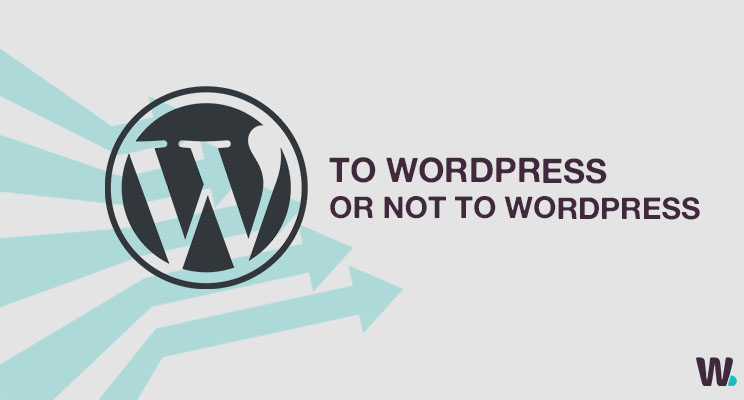Is WordPress always the best solution?

As of the end of 2019, WordPress is now installed on around 455,000,000 (45 Million) websites. Meaning that some 35% of the internet is now “Powered by WordPress”.
It’s one of the top CMS’s or Content Management Systems on the market with a 61.8% market share. So, what makes WordPress so popular as a CMS? Well:
- It can be setup and installed in less that 5 minutes or less.
- There are over 54,000 Free Plugins to increase your websites capabilities
- Available in over 100 languages
- Team of developers & contributors behind it; keeping it up to date and adding new features
- Over 4,000 free themes available
And much more. But recently WordPress has been in a bit of a bad light after hundreds of thousands of WordPress websites became vulnerable.
WordPress started life as a blogging platform but has been adapted/shaped into one of the most powerful website builders and content management systems available on the market. However, a huge part of what makes WordPress so great is its library of plugins. Both free and premium.
These plugins are provided by external development companies and with anything, every now and then they become outdated. Or the code within them isn’t robust enough to defend against potential vulnerabilities.
These plugins need to be constantly maintained, updated and checked for any errors. This problem is exacerbated when websites are running, 25-40 plugins for their functionality.
On a weekly basis, we are giving out the same advice to legacy website owners. We are bombarded with businesses who all have similar problems related to their WordPress installation.
- Their website is running extremely slowly
- Every time they update something, it breaks something else
- Functionality they once had has gone missing
Most of the time the reason for this is because their previous website designer wasn’t completely clued up. Instead of developing certainly features themselves (carousels, galleries, content sections, even headers), they would install a plugin for every aspect. Leading to a website being clogged up with plugins.
Think of each plugin as a single entity within a website, they know the building blocks they need to function; A version of jQuery or JavaScript, a specific CDN Library etc. But with multiple plugins, before you know it that website is requesting 20-30 external sources. Which can cause conflict errors and bog down the website loading all these assets.
We believe in one, very important rule when building a WordPress website; Only install plugins for features that are either needing to be edited frequently by the end user, or is advanced functionality that would extend the build time/final quote dramatically for the customer.
Delivering websites to customers with 2-3 plugins not only increases the longevity of the website, but also the security of the site as well.
Do you have any options other than WordPress? Hell yes!
Static is back, and with a vengeance. Now more than ever having a static website could be the best option for your business. Why?
- Static Websites are FAST – Unlike websites powered by a CMS, there is no database querying for the data on the website. Meaning you are just rendering the website and nothing else. Giving you a far superior load speed to CMS driven websites.
- More Secure – Without a CMS, there are no logins or ways to access the backend of the website without having access to the files themselves.
- Stand the test of time – Without a CMS or plugins that can go out of date, a static website can stand the test of time error free (more or less).
- Adaptable to more solutions – Most importantly, a website which isn’t integrated with a CMS gives you more scope to produce whatever you want. Integrate with a customer booking system DONE. Create a custom portal for your clients SIMPLE.
Decision making time: WordPress/CMS or something else?
At the end of the day, it all comes down to personal preference. But as a business we are finding more and more clients are moving away from WordPress for enterprise level solutions.
Best bet, ask yourself the following: How often do you really update your website, and do you do it yourself or get your website developer to do it for you?
If the answer is either NOT VERY or MY WEB DEVELOPER DOES IT ALL FOR ME, chances are you may benefit from a static website after all!
